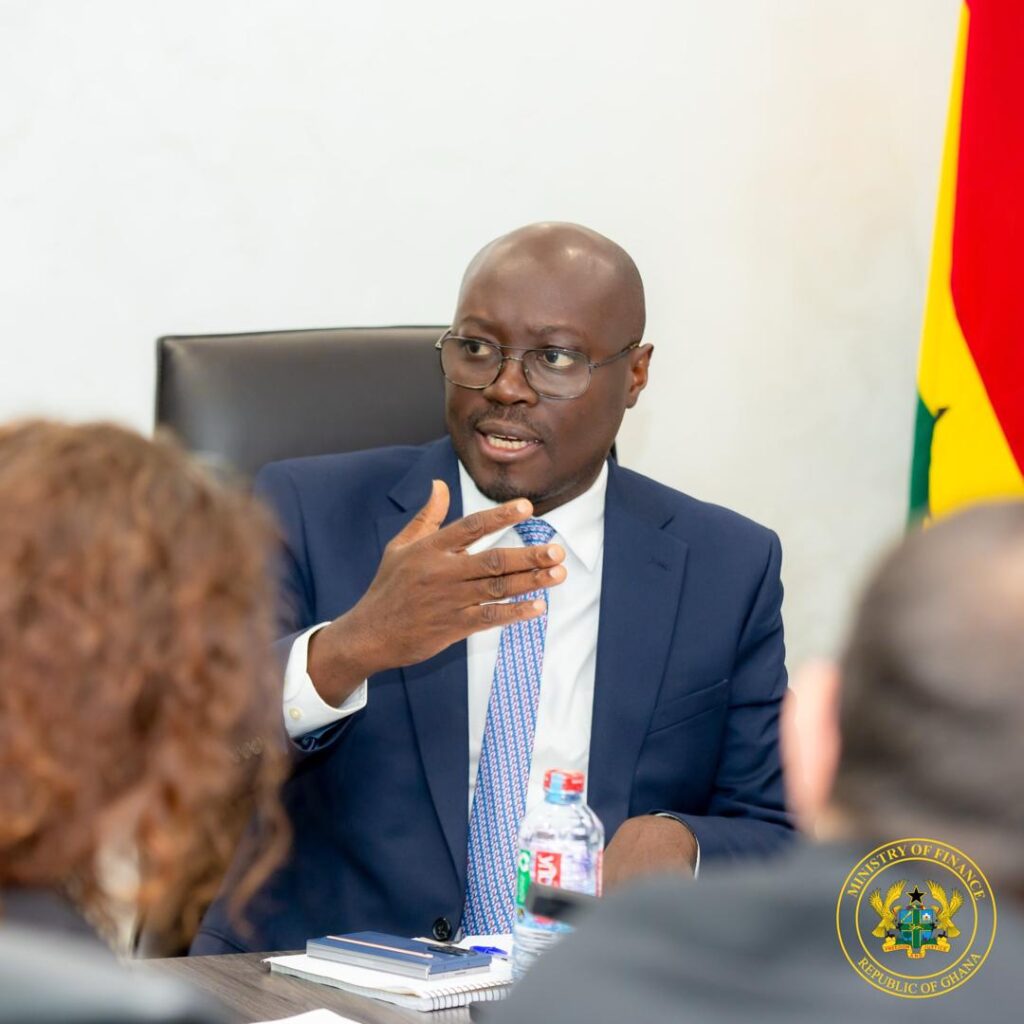The International Monetary Fund (IMF) has commenced its fourth review mission in Ghana as part of the country’s Extended Credit Facility (ECF) program for 2023–2026.
The two-week review, which runs from April 2 to April 15, is a crucial assessment of Ghana’s economic performance and the progress of structural reforms under the IMF-backed stabilization program.
The mission, which began with high-level discussions at the Ministry of Finance and the Bank of Ghana, focuses primarily on Ghana’s fiscal performance in 2024.
“Over the coming days, the IMF delegation will engage with senior government officials, Central Bank executives, and key stakeholders to assess critical economic indicators, including inflation control, monetary policy, and structural reforms.”
Ministry of Finance, Ghana
Ghana’s engagement with the IMF under the ECF program has been driven by the need to restore macroeconomic stability following the country’s recent economic turbulence.
The review will assess whether Ghana has met key IMF targets in areas such as fiscal discipline, debt restructuring, and economic stabilization.
Additionally, the mission will scrutinize progress made in public sector financial management, expenditure controls, and revenue-enhancing measures.
Government’s Measures to Address Economic Weaknesses
Speaking at the initial engagement, Finance Minister Dr. Cassiel Ato Forson expressed optimism about the review, citing major policy measures undertaken by the NDC government to address structural weaknesses in the economy.
These include the passage of tax amendment bills aimed at improving domestic revenue mobilization, significant reforms in public procurement to curb corruption and inefficiencies, and broader economic policies outlined in the 2025 Budget.
According to Dr. Forson, these reforms are part of a broader strategy to build a resilient and dynamic economy that can withstand external shocks.
He further emphasized that Ghana’s macroeconomic indicators have shown signs of improvement, suggesting that economic stabilization could be achieved by May 2025 if the country stays on course with its reform agenda.

IMF Review and Next Steps
The outcome of the IMF’s fourth review mission is critical for Ghana, as it will determine whether the country qualifies for the next tranche of IMF financial support.
This funding is essential not only for maintaining macroeconomic stability but also for restoring investor confidence in the Ghanaian economy.
The IMF’s evaluation will include an in-depth assessment of Ghana’s progress on debt restructuring, particularly in line with agreements with external creditors.
Debt sustainability remains a key condition for continued IMF disbursements under the ECF program, and Ghana’s ability to meet its debt servicing obligations will play a significant role in the review outcome.
Another key area of interest for the IMF delegation will be inflation control and monetary policy measures implemented by the Bank of Ghana.
The Central Bank has been working to rein in inflation, which peaked at historic levels in 2022 before gradually easing in 2023, 2024 and the first quarter of 2025.

The IMF will assess whether current policy interventions are sufficient to sustain this downward inflationary trend and ensure long-term price stability.
In addition to these macroeconomic concerns, discussions will also focus on Ghana’s foreign exchange reserves, trade balance, and structural policies aimed at promoting economic growth and job creation.
The IMF’s recommendations following this review will be crucial in shaping Ghana’s economic policies for the rest of the year.
Despite the optimism expressed by the government, Ghana still faces significant challenges in achieving full economic recovery.
The country’s fiscal space remains constrained, with high debt levels limiting government spending on critical sectors such as infrastructure, healthcare, and education.
Additionally, the ongoing global economic uncertainties, such as fluctuating commodity prices and potential external shocks, could further complicate Ghana’s economic trajectory.
Furthermore, while the government has made strides in reforming its tax policies, concerns remain about the effectiveness of revenue collection mechanisms and the ability of the state to curb tax evasion and illicit financial flows.

Addressing these issues will be crucial for Ghana’s ability to generate sustainable domestic revenue and reduce reliance on external financial assistance.
The IMF’s fourth review mission is a pivotal moment for Ghana’s economic recovery efforts. The government’s ability to meet IMF targets and implement meaningful structural reforms will determine the country’s access to crucial financial support and investor confidence.
With the final IMF statement expected on April 15, stakeholders across various sectors will be keenly awaiting the outcome, which could provide further clarity on Ghana’s economic trajectory in the months ahead.
READ ALSO: President Mahama Signs Bills Scrapping E-Levy, Betting Tax, Emissions Levy



















